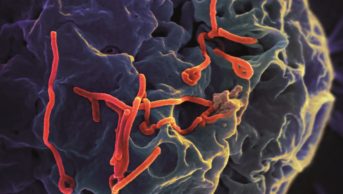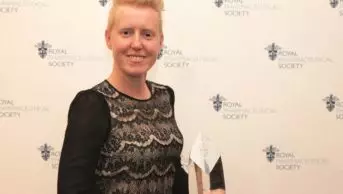Water and soil pollution caused by the improper disposal of unused or expired medicines has been globally recognised as a significant environmental challenge. Active pharmaceutical ingredients (API) in drugs, which very often are designed to resist degradation, become environmentally persistent pollutants that have been linked to organ and reproductive failure in wildlife as well as antibiotic-resistance in microbes1–3.
A systematic review, published on 1 February 2024 and awarded the International Journal of Pharmacy Practice (IJPP) 2024 ‘Paper of the Year’ award, demonstrated that, while people have a favourable attitude towards safe medication disposal practices, “the actual practice of the public remains unsatisfactory owing to the limited understanding of disposal methods, medication return mechanisms, and how household pharmaceutical waste causes pollution”4.
The most alarming finding was the predominant practice of disposing medicines into household trash or flushing them down toilets and sinks, given that conventional sewage treatment plants cannot eliminate APIs from effluents.
The review was aimed to investigate the knowledge, attitude and practice (KAP) of the public regarding disposal of household medicines to understand the “factors driving improper medication disposal” and hence devise suitable mediation strategies. The KAP model is a widely used model in behavioural management to assess how people perceive and engage with topics and helps design informed interventions to influence behaviour.
The study concludes that a “multi-faceted approach addressing knowledge gaps, reinforcing positive attitudes and promoting an accessible medication take-back service can collectively safeguard public health and the environment”.
Here, its lead author Bee Yean Low, associate professor at the University of Nottingham Malaysia, shares her experiences writing this research paper.
What was the inspiration of this research?
A few years ago, I was surprised to see one of my relatives pour liquid medication down the toilet. They were perplexed that I questioned this practice since they thought that the medication would not cause any harm after flushing and asked me: “If I don’t pour it in the toilet, do I just put it in the bin?”
In Malaysia, it is not against the law to put unused medications in the household waste bin
This prompted me to investigate how community pharmacies in Malaysia handle medication disposal and I discovered that here there is no compulsory regulation that medical waste in households must be incinerated — it is not against the law to put unused medications in the household waste bin.
How did you assemble the team to conduct this research?
This work is part of a wider study on behavioural practices involved in household medication disposal in Malaysia. We first investigated the role of community pharmacists in household pharmaceutical waste disposal in Malaysia and the logical next step was to study how the public approached this issue.
This review is a foundational academic exercise for Sheng Yuan Hiew, a PhD student at the University of Nottingham Malaysia and first author of this study. The data screened for this study gave the research team an idea of the global state of the art.
It is essential to have a research team with expertise in statistics and health psychology to analyse and interpret data — these are not areas that one can dabble in without the necessary experience. In addition, we should consult a librarian to create the appropriate search terms to curate the research literature, since even the most experienced researchers will not be able to find all the relevant papers.
What is the most important finding of this paper and its implication for pharmacy practice?
Although the public has broadly a positive attitude towards safe medication disposal, this is not being translated into practice, possibly owing to limited understanding of how unsafe medication can cause harm and the assumption that sewage treatment can clean out chemicals. It is surprising how practice is unaffected by attitude or knowledge.
What is the future direction of this work?
We are looking into how community pharmacies and digital pharmacies can be hubs for collection of pharmaceutical waste in Malaysia. The MyMediSAFE website is a public–private initiative to encourage community pharmacies to act as medication disposal points and train pharmacists to implement this in their communities. Unlike the UK, Malaysian community pharmacies are predominantly private enterprises and medication disposal needs to be implemented in their corporate social responsibility initiatives.
- 1.Swan G, Naidoo V, Cuthbert R, et al. Removing the Threat of Diclofenac to Critically Endangered Asian Vultures. Mace GM, ed. PLoS Biol. 2006;4(3):e66. doi:10.1371/journal.pbio.0040066
- 2.Jobling S, Williams R, Johnson A, et al. Predicted Exposures to Steroid Estrogens in U.K. Rivers Correlate with Widespread Sexual Disruption in Wild Fish Populations. Environ Health Perspect. 2006;114(Suppl 1):32-39. doi:10.1289/ehp.8050
- 3.Ahmad A, Patel I, Khan MU, Babar Z ud-din. Pharmaceutical waste and antimicrobial resistance. The Lancet Infectious Diseases. 2017;17(6):578-579. doi:10.1016/s1473-3099(17)30268-2
- 4.Hiew SY, Low BY. The knowledge, attitude, and practice of the public regarding household pharmaceutical waste disposal: a systematic review (2013–2023). International Journal of Pharmacy Practice. 2024;32(2):120-132. doi:10.1093/ijpp/riae001


